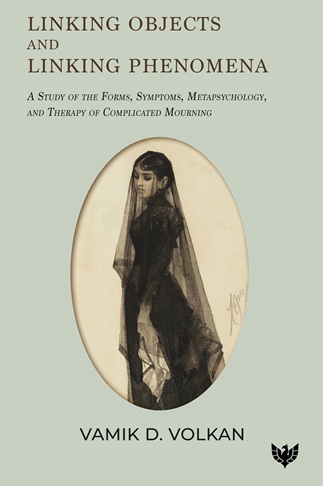Large-Group Psychology: Racism, Societal Divisions, Narcissistic Leaders and Who We Are Now

Book Details
- Publisher : Karnac Books
- Published : June 2020
- Cover : Paperback
- Pages : 154
- Category :
Individual Psychotherapy - Catalogue No : 94849
- ISBN 13 : 9781912691654
- ISBN 10 : 9781912691
Also by Vamik D. Volkan
There are currently no reviews
Be the first to review
A new and updated exploration of large-group psychology from world-renowned psychoanalyst Dr Vamik D. Volkan. This timely book investigates the underlying psychology of the societal divisions occurring in the world and includes the author’s personal observations and experiences of racism as a ‘voluntary immigrant’ to the US over six decades ago. Large-Group Psychology: Racism, Societal Divisions, Narcissistic Leaders and Who We Are Now is an immensely readable book, written in a beautifully clear and jargon-free prose.
Reviews and Endorsements
What strikes me again on reading this book by Vamık Volkan is his extraordinary capacity to convey complex concepts resulting from psychoanalysis in a language that can be understood by everyone, and how they can be applied to society at large. Vamık Volkan reveals the ways in which his personal story, linked to large-group conflicts in Cyprus, his international diplomatic experiences, and his long experience as a psychoanalyst, are interweaved with the development of his theoretical frameworks, which greatly contribute to the understanding of our present time.
In this book, Vamık Volkan addresses major present issues, like the growing divide of large groups, the technical changes (robotization, AI), the psychology of political leaders, linked to this essential question: “Who are we now as a civilization?” Large-group psychology, resulting from Vamık Volkan’s works, should be an integral part of all university studies, as much as history and other academic science humanities.
Brigitte Demeure, PhD, President of the French Society of Psychohistory and former Vice-president of the A2IP (Association Internationale Interactions de la psychanalyse)
Having been a close witness to Dr. Volkan’s teachings, writings, and practices on large-group psychology for four decades, I heartily welcome his classic tome on the subject. We have here a masterful, comprehensive, and highly nuanced chronicle of his work that draws wisdom from private and public consultations in such august places as the US State Department, the offices of Foreign Ministries abroad, the Kremlin, classrooms in Finland, Germany, Israel, Austria, Turkey and here in the United States, among many other settings. In all these environs, he has enabled curious minds to expand in ethical, productive, and creative ways, closed minds to gradually open, enabled bellicose enemies and allies in fractured communities to reconfigure their embedded hostilities.
Henceforth, psychoanalysts, psychologically minded diplomats, historians and other scholars will think and practice differently. Henceforth, the intersection between internal and external spheres of reference will become a productive and curative space for working through traumatic and unmetabolized and/or disabling communal memories. A spiral causality where inside and outside change spaces, historical and contemporary events mirror each other and obligate us to resubjectivize the events of history into a represented sense of history will have pride of place in clinical inquiry, peacemaking, nation building, and multiple contexts of conflict resolution. After reading “Large-Group Psychology”, as the subtitle of the book points to, we will have to ask ourselves who we are in the face of racism, societal divisions, and narcissistic leaders in turbulent times such as ours today.
Maurice Apprey, PhD, DM, FIPA, Professor of Psychiatry, Dean of African American Affairs,and Associate Vice-president of Student Affairs, University of Virginia and Training and Supervising Psychoanalyst, Contemporary Freudian Society
Vamık Volkan in his new book masterfully weaves together the many strands that go into the formation of the concept “large-group psychology”. The central psychological factor in starting and keeping alive large-group conflicts is the protection and maintenance of large-group identity such as “We are Palestinians” or “We are Croats”.
‘His impetus to write the book was outrage over a racist incident in his hometown. The response by the authorities was an endorsement of societal division. The focus of this book is an examination of the causes of such divisions. He provides an absorbing narrative of his unique conceptual psychoanalytic approach. His suggested interventions are based on his understanding of the conflict. He addresses and suggests approaches to diffuse flashpoints of conflicts in many countries. He is a gifted writer who describes how personal incidents in his life led to his lifelong interest in the field of large-group interactions.
To sum up, this is an outstanding book that will reward the reader with a clear understanding of the underlying causes of large group conflicts.
Gunther Perdigao, M. D., Member of the Executive Committee, International Psychoanalytical Association and Associate Secretary General, International Psychoanalytical Association 2009–2013
Vamik D. Volkan is a well-known writer, author of countless articles and more than 50 books. This one might perhaps be his most personal and, at the same time, concise one. For me it was felt on every page, how much the topic — large group psychology in its own right — means to him and how deeply he feels the necessity to convey his thoughts and findings in this area to a wider public, considering the concepts and their application as valuable tools to understand and improve international relationships.
… He does so in a remarkably focused way and easy to read language …
[Chapter 6] contains in a very condensed form a complete strategy for planning and performing a reconciliation process. For those who want to work in that field it is highly recommended …
This book is dedicated to bring to the attention of the wider public the importance of large group identity issues … It is a comprehensive summary of the author’s ideas and concepts, offering answers to some of the most urgent problems of our time and showing how impregnated individual psychology is by the surrounding social movements. … Vamik Volkan has an extraordinary gift to bring complex psychological, psycho-political issues to many people’s attention, people often outside the psychological community.
Regine Scholz, Group Analysis
Vamik’s newest book reads easily, even if he writes about the most complex issues in the world. … I believe that there is no other thinker whose conceptualizations contribute so much to our ability to think about socio-political issues in society. …
I find Vamik’s attempts to analyse society thought-provoking because he tries to connect the society, the ‘large group’ and the individual in a complex way. … Vamik’s biggest creative act is the translation from the psychological, even psychoanalytical, thinking into a simpler socio-political thinking.
Robi Friedman, Group Analysis
Table of Contents
About the author
About this book
CHAPTER ONE
Personal motivations for studying large-group psychology
CHAPTER TWO
Large-group psychology in its own right
CHAPTER THREE
Large-group identity that develops in adulthood
CHAPTER FOUR
Psychology of decision-making and political leader–followers relationships
CHAPTER FIVE
Political propaganda
CHAPTER SIX
Applying the Tree Model and large-group consultations
CHAPTER SEVEN
Cherry Hospital: personal observations on racism
CHAPTER EIGHT
Who are we now?
CHAPTER NINE
Persons with exaggerated narcissism
Last words
References
About the Author(s)
Vamık D. Volkan is an Emeritus Professor of Psychiatry at the University of Virginia, an Emeritus Training and Supervising Analyst at the Washington Psychoanalytic Institute, and the Senior Erik Erikson Scholar at the Austen Riggs Center in Stockbridge, Massachusetts. He is the president of the International Dialogue Initiative and a former president of the International Society of Political Psychology, the Virginia Psychoanalytic Society, and the American College of Psychoanalysts. He received the Sigmund Freud Award given by the city of Vienna in collaboration with the World Council of Psychotherapy, and in 2015 received the Sigourney Award, honouring achievements for the advancement of psychoanalysis.
Customer Reviews
Our customers have not yet reviewed this title. Be the first add your own review for this title.
You may also like
The Disintegrating Self: Psychotherapy of Adult ADHD, Autistic Spectrum, and...
Phil Mollon
Price £36.99
Traveling through Time: How Trauma Plays Itself out in Families, Organizations...
M. Gerard Fromm
Price £26.99
save £3.00
Perversity, Pornography, and the Psychology of the Male Species: An Overdue...
Richard Tuch
Price £22.99
The Mind Movement: Integrating Body, Breath and Movement in Therapy
Lorna Evans
Price £22.49
save £2.50










